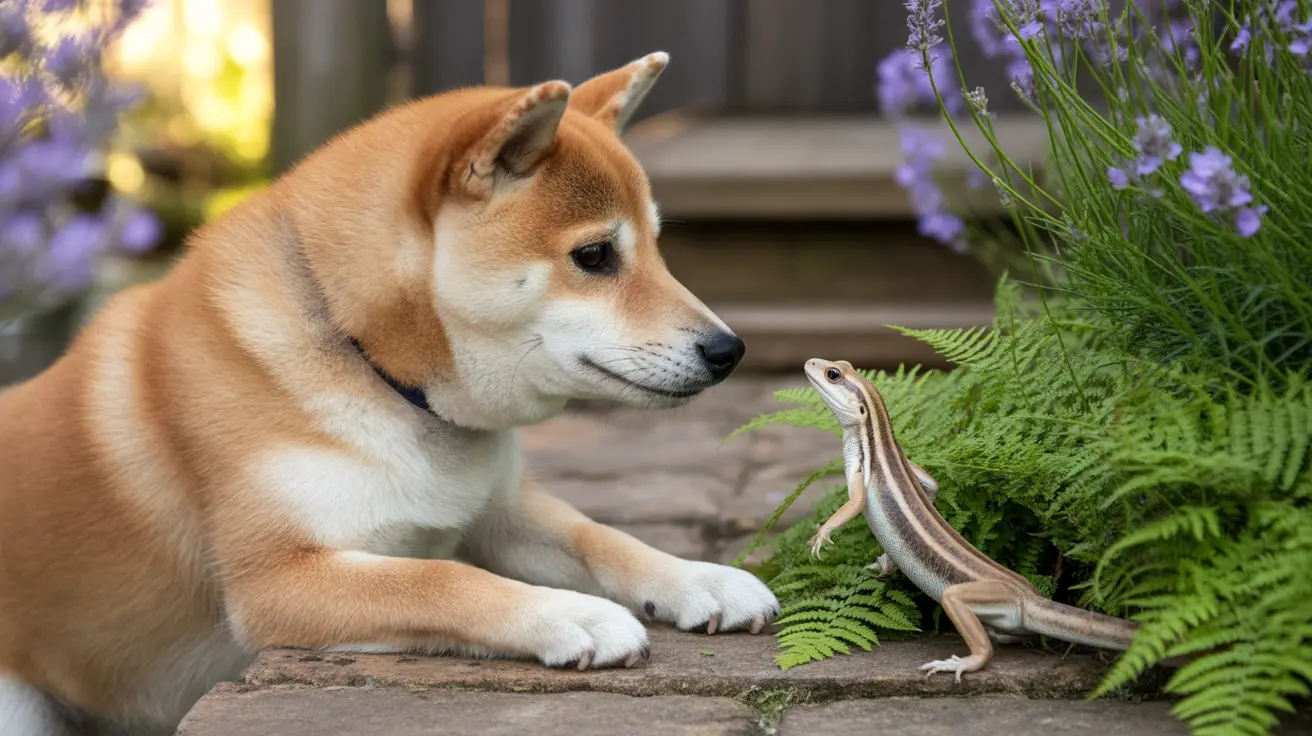Many dog owners worry when they spot a skink in their yard or garden, wondering if these small lizards pose a threat to their beloved pets. The good news is that skinks are generally not poisonous to dogs, though there are some important health considerations to keep in mind.
In this comprehensive guide, we'll explore the truth about skink-dog interactions, potential health risks, and what steps you should take if your dog encounters one of these reptiles.
Understanding Skinks and Their Interaction with Dogs
Skinks are small, smooth-scaled lizards that are common in gardens and homes across many regions. While they may look intimidating with their bright colors and quick movements, these reptiles are generally harmless to dogs. They don't produce venom or toxic secretions that could seriously harm your pet.
However, this doesn't mean that all interactions between dogs and skinks are completely risk-free. There are some considerations that pet owners should be aware of.
Potential Health Risks When Dogs Encounter Skinks
Bacterial Infections
The primary concern when dogs interact with skinks isn't poison but rather bacterial transmission. Skinks, like many reptiles, can carry Salmonella bacteria in their digestive system and on their skin. If your dog catches or consumes a skink, they could be exposed to these harmful bacteria.
Physical Injury Risks
While skinks aren't poisonous, they may bite in self-defense if cornered or caught by a dog. These bites are typically minor but should be cleaned to prevent infection. Additionally, the act of catching or eating a skink could lead to minor cuts or scratches in your dog's mouth.
Signs to Watch For After Skink Contact
If your dog has encountered or consumed a skink, watch for these symptoms:
- Excessive drooling
- Vomiting or diarrhea
- Loss of appetite
- Lethargy
- Signs of infection around any bite wounds
- Unusual behavior or disorientation
Prevention and Safety Measures
To protect your dog from any potential skink-related issues:
- Supervise outdoor activities in areas where skinks are common
- Keep your yard clean and free of debris where skinks might hide
- Train your dog to respond to "leave it" commands
- Maintain regular parasite prevention
- Keep your dog's vaccinations up to date
When to Seek Veterinary Care
While most skink encounters don't require medical attention, you should contact your veterinarian if:
- Your dog shows persistent vomiting or diarrhea
- There are signs of infection around bite wounds
- Your pet displays unusual neurological symptoms
- You notice severe lethargy or loss of appetite
- There's blood in your dog's stool
Frequently Asked Questions
Are skinks poisonous or venomous to dogs?
No, skinks are not poisonous or venomous to dogs. While they may bite in self-defense, they don't produce toxic substances that could poison your pet.
What health risks do skinks pose if my dog bites or eats one?
The main risks are bacterial infections (particularly Salmonella) and minor physical injuries from bites or ingestion. Most dogs experience only mild digestive upset, if any symptoms at all.
Can skinks transmit diseases like Salmonella to my dog?
Yes, skinks can carry and transmit Salmonella and other bacteria to dogs through direct contact or ingestion. This is the primary health concern with skink-dog interactions.
What symptoms should I watch for if my dog encounters or eats a skink?
Monitor for vomiting, diarrhea, lethargy, loss of appetite, and signs of infection. Most symptoms are mild and resolve on their own, but severe or persistent symptoms warrant veterinary attention.
How can I prevent my dog from getting sick or injured by skinks in the garden?
Supervise your dog outdoors, maintain a clean yard, train them to avoid wildlife, and ensure they're up to date on vaccinations and parasite prevention.
Remember, while skinks aren't poisonous to dogs, it's still best to discourage your pet from interacting with these small reptiles. By staying informed and taking proper precautions, you can keep your dog safe while allowing these beneficial garden creatures to go about their business.






